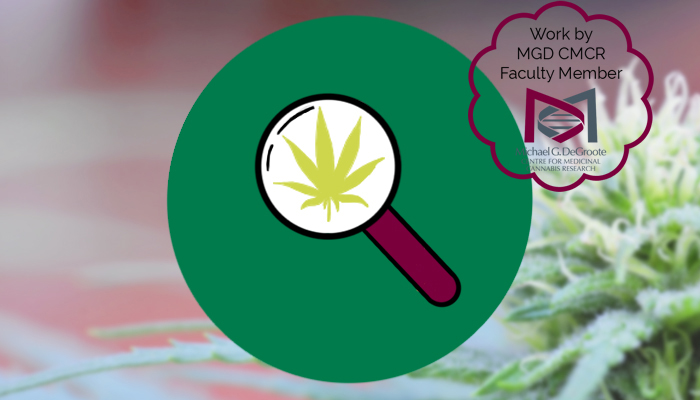Can AI predict mental health symptom response to acute cannabis use?

Kuhathasan, N., Ballester, P. L., Minuzzi, L., MacKillop, J., & Frey, B. N. (2023). Predictors of perceived symptom change with acute cannabis use for mental health conditions in a naturalistic sample: A machine learning approach. Comprehensive Psychiatry, 122, 152377. https://doi.org/10.1016/j.comppsych.2023.152377
Why was this research conducted?
Cannabis use has been continuously reported as a management technique for numerous mental health issues in naturalistic field studies. This study was aimed to use machine learning methods to explore different symptom changes across a large sample of individuals with mental health symptoms and acute cannabis use. The aim was to have a better understanding of the self-perceived effectiveness of cannabis use in relation to mental health symptoms, and how specific variables may affect this symptom change.
What does this article add?
Machine learning was used to analyze the dataset (n = 68,819 observations across 1,307 individuals). Models with high predictive performance were developed connecting variables such as gender and pre-cannabis use rating of symptom severity to the outcome of post-cannabis use rating of symptom severity. Specific models were created for insomnia, depression and anxiety.
Males may benefit more from therapeutic cannabis use than females when pre-symptom severity is higher, however when the pre-symptom severity is lower females seem to benefit from cannabis use more than males. Users who report lower depression symptom severity before cannabis use are more likely to report benefiting from cannabis use than those who report a higher severity of depression pre-cannabis use.
The opposite correlation is seen with insomnia and cannabis use, where individuals who report a higher severity of insomnia before cannabis use are more likely to report an improvement in the symptoms after the cannabis use.
The changes in anxiety aren’t as consistent as the other symptoms. The users who report the highest anxiety initially seem to report more benefits from cannabis use compared to users who report a lower initial anxiety severity.
Anything else I should know?
The primary focus of this study’s investigation was the acute use of cannabis in correlation to short-term self-reported symptom changes. It is still not clear how any extended use would change these results. The data collection should be interpreted with caution as the symptoms were self-reported and therefore subjective. The app also constricts the symptoms the participants can report, meaning there may have been important information missing, such as potential side effects. Finally, these analyses should only be used to explain the models and cannot definitively imply causality between predictors and target variables.
Featured News, Latest, Research - Other